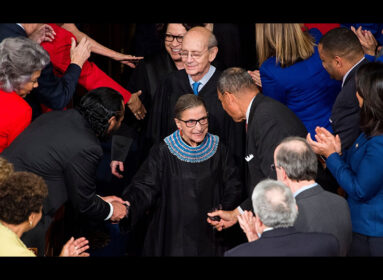
Anita Schorr
WESTPORT – “I thought my mother didn’t love me,” said 80-year-old Anita Schorr, a Holocaust survivor as she sat in her Westport home.
In 1943, the Nazis sent Schorr and her family from the Jewish ghetto of Terezin to Auschwitz. At the concentration camp, Nazi guards informed women between the ages of 18 and 50 they could sign up to do forced labor in Germany. Schorr was not even 14.
“My mother pushed me and told me, ‘you are 18 and you are strong,’” Schorr said. She asked her mother to come but her mother said she could not leave her brother, who was only nine. When her mother pushed her into the line with the women, her mother turned and walked away. “That’s when she saved my life,” said Schorr, even though at that moment she thought her mother didn’t love her.
The only survivor in her family, Schorr will be the main speaker at a program to commemorate the Holocaust at The Conservative Synagogue in Westport on May 1. The Yom HaShoah program is open to the community and will start at 7:00 p.m. It will include music and art work from children in Terezin and participation from second and third-generation survivors.
At Auschwitz, the notorious Dr. Joseph Mengele directed Schorr to line up with the women he considered not fit to work. Schorr, like the others, had been stripped naked for the inspection. When Mengele didn’t choose her to be a laborer, Schorr bolted from the line. This could easily have resulted in her being killed by the Nazi guards, she said.
“My body revolted. I thought I would burst and I ran for the latrines,” Schorr said. However, Schorr went in line again, putting her arm over her body to hide it since she was not physically developed. This time, Dr. Mengele selected her to do forced labor in Hamburg, Germany. The rest of her family perished in the gas chambers at Auschwitz.
When the women selected to work were preparing for medical exams, Schorr started to cry, wanting to return to her mother, but a Nazi SS guard brought her into her office and offered her hot cocoa. The SS guard told Schorr not to return to her mother.
“You are going to Germany,” she said. The guard, like many of the prisoners, knew anyone not selected for forced labor would be exterminated at Auschwitz, Schorr said.

Anita Schorr (top row, second from left) was seven- years old when she was a member of this Maccabi Jewish sports group in Czechslovakia, circa 1937.
“She had a moment of humanity,” said Schorr, who grew up in a cultured, assimilated family in Czechoslavakia.
Schorr dug trenches in Hamburg for the German soldiers. “They had lorries next to the trenches and if you didn’t fill them up, you got beaten or punished,” she said. “I was helping the people in front of me and behind me and I was obsessed with digging to stay strong and alive,” said the lively Schorr. When the Allied forces bombed homes in Hamburg, Schorr and the other women would sometimes find food when they were sent to clean through the rubble.
“The biggest part of survival was to be able to satisfy the constant need for food,” she said.
After Hamburg, Schorr was sent for six weeks to Bergen-Belsen. When Bergen-Belsen was liberated in 1945, Schorr lived in Czechoslovakia for about three years and joined the Haganah, the underground Jewish defense force and instructed other Jewish survivors in training for the army. Thrilled when Israel became a nation in 1948, Schorr moved there and lived on a border kibbutz where she married and gave birth to a son.
She left in 1959 with her first husband and son for the United States, and worked in print advertising for many years. Her son and three grandchildren live in Colorado. At her home in Westport, she is an avid opera and classical music lover, swims nearly everyday in her indoor pool, plays tennis, skis, and helps to care for her husband, Harold, who is now disabled.
For 30 years, Schorr said she did not speak about the Holocaust. But for the past 18 years, she has spoken about her experience to thousands in schools, churches and synagogues in the area. Her son, who is almost 55, has told her that she is “woman of today and tomorrow” and questioned why she is talking about the past. His father, her first husband, was a survivor as well.
In the early years after the war, Schorr said she and other survivors questioned survivors who became famous telling their stories: she thought they were weak. Now she realizes she had to “wear armor” to protect herself and was too fragile to tell her story. “It took courage,” she said, talking about the well-known writer Elie Wiesel. “It took most of us 30 years to do that.”
Remembering the Holocaust is not enough, she says in her presentations. Young people, she said, cannot wait for someone else to do the right thing when they see someone doing something wrong. “Step in. Be a hero,” she tells young people.
Pulling up her sleeve, she shows the number 71569, tattooed on her forearm in Auschwitz. “Children want to touch it,” she said.
The community-wide Holocaust commemoration will be held at The Conservative Synagogue, 30 Hillspoint Road, Westport on May 1 at 7 p.m. The event is free and open to all.







 Southern New England Jewish Ledger
Southern New England Jewish Ledger













